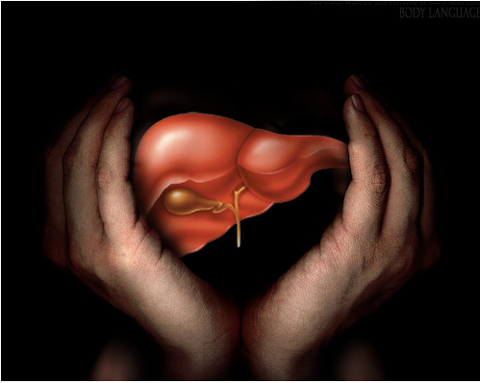The liver, the largest internal organ in the human body, plays a crucial role in maintaining overall health and well-being. This remarkable organ performs a multitude of essential functions, acting as a filter, a storage unit, and a metabolic powerhouse. From detoxifying the blood to producing bile for digestion, the liver's responsibilities touch nearly every other organ system. Therefore, understanding how to care for this vital organ is paramount for maintaining optimal health. This article explores the liver's multifaceted functions, the factors that can compromise its health, and evidence-based strategies for supporting its optimal performance. We'll delve into the science behind liver function and provide practical tips for maintaining its health through diet, lifestyle, and targeted nutrients.
The Liver's Multifaceted Roles: A Central Hub for Health
The liver is much more than just a filter; it's a dynamic organ involved in a wide range of metabolic processes. Some of its key functions include:
- Detoxification: The liver filters blood from the digestive tract, removing toxins, drugs, and other harmful substances before they circulate throughout the body. This detoxification process is crucial for protecting other organs from damage.
- Bile Production: The liver produces bile, a fluid that aids in the digestion and absorption of fats. Bile is stored in the gallbladder and released into the small intestine during digestion.
- Nutrient Storage: The liver stores essential vitamins (A, D, E, K, B12) and minerals (iron, copper) and releases them into the bloodstream as needed. This storage function ensures a constant supply of these vital nutrients.
- Metabolism: The liver plays a central role in the metabolism of carbohydrates, proteins, and fats. It converts glucose into glycogen for storage, breaks down proteins into amino acids, and produces cholesterol and other lipids.
- Blood Clotting: The liver produces clotting factors, proteins that are essential for blood coagulation and preventing excessive bleeding.
- Immune Function: The liver contains specialized immune cells that help fight infections and remove bacteria from the bloodstream.
Overtaxing the Liver: The Impact of Modern Lifestyle
While the liver is remarkably resilient, it can become overwhelmed by various factors associated with modern lifestyles. These include:
- Excessive Alcohol Consumption: Alcohol is a potent liver toxin. Chronic alcohol abuse can lead to fatty liver disease, hepatitis, and cirrhosis.
- Unhealthy Diet: A diet high in processed foods, saturated fats, and added sugars can contribute to non-alcoholic fatty liver disease (NAFLD), a growing health concern.
- Environmental Toxins: Exposure to environmental pollutants, pesticides, and heavy metals can burden the liver's detoxification capacity.
- Certain Medications: Some medications can be toxic to the liver. It's essential to discuss potential liver side effects with your doctor before starting any new medication.
When the liver is overtaxed, it may not be able to perform its functions efficiently, leading to a buildup of toxins in the body and potentially contributing to various health problems. Recognizing the factors that can compromise liver health is the first step towards taking proactive measures to protect this vital organ.
Supporting Liver Health: Evidence-Based Strategies
Several evidence-based strategies can help support liver health and promote optimal function:
- Healthy Diet: A balanced diet rich in fruits, vegetables, whole grains, and lean protein provides the liver with the nutrients it needs to function optimally. Limiting processed foods, saturated fats, and added sugars is crucial for preventing NAFLD.
- Regular Exercise: Physical activity can improve liver function and reduce the risk of NAFLD. Aim for at least 150 minutes of moderate-intensity aerobic exercise or 75 minutes of vigorous-intensity aerobic exercise per week.
- Limit Alcohol Consumption: Reducing or eliminating alcohol intake is essential for preventing alcohol-related liver damage.
- Avoid Exposure to Toxins: Minimize exposure to environmental toxins, pesticides, and heavy metals whenever possible.
- Maintain a Healthy Weight: Maintaining a healthy weight reduces the risk of NAFLD and other liver-related problems.
- Hydration: Drinking plenty of water is essential for supporting liver function and flushing out toxins.
- Targeted Nutrients: Certain nutrients and herbs have been shown to support liver health. These include:
- Milk Thistle: This herb contains silymarin, a compound with antioxidant and anti-inflammatory properties that can protect liver cells from damage [1].
- Artichoke Extract: This extract can stimulate bile production and improve liver function [2].
- Dandelion Root: This herb has diuretic properties and may help support liver detoxification [3].
- Milk Thistle: A Review of its Clinical Properties and Potential Therapeutic Applications. (Various studies on silymarin and liver health).
- Artichoke Leaf Extract for Treating Hyperlipidemia. (Various studies on artichoke extract and liver function).
- Dandelion (Taraxacum officinale) and its hepatoprotective activity. (Various studies on dandelion root and liver health).
It's important to consult with a healthcare professional before taking any new supplements, especially if you have existing liver conditions or are taking medications. This ensures that the supplements are safe and appropriate for your individual needs. This holistic approach emphasizes the importance of combining lifestyle changes with targeted nutrients to support optimal liver health and overall well-being. By taking proactive steps to care for your liver, you can significantly improve your long-term health and quality of life.













